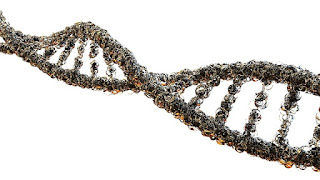There are two main types of hypertension: primary (or essential) hypertension and secondary hypertension. Primary hypertension is the most common type, accounting for approximately 90% of cases. It has no identifiable cause but is believed to be linked to lifestyle factors such as diet, exercise, and stress. Secondary hypertension is caused by an underlying medical condition such as kidney disease, thyroid disorders, or sleep apnea.
Causes of High Blood Pressure
Is High Blood Pressure Genetic?
Research has shown that hypertension can be congenital (genetically inherited). If your parents or other close family members have high blood pressure, you are more likely to develop it as well. However, genetics alone do not determine whether or not you will develop hypertension. Environmental factors such as diet and exercise play a significant role.
Several genes have been implicated in hypertension, including genes that regulate blood pressure, sodium and water balance, and blood vessel function. Some of the most well-studied genes associated with hypertension include:
- ACE (angiotensin-converting enzyme): This gene plays a role in the regulation of blood pressure by controlling the production of a hormone called angiotensin II, which constricts blood vessels and increases blood pressure.
- AGT (angiotensinogen): This gene codes for a protein that is involved in the production of angiotensin II.
- NOS3 (nitric oxide synthase 3): This gene is involved in the production of nitric oxide, which helps to relax blood vessels and lower blood pressure.
- ADD1 (alpha-adducin): This gene plays a role in the regulation of sodium and water balance in the body, which can affect blood pressure.
- CYP11B2 (aldosterone synthase): This gene is involved in the production of aldosterone, a hormone that regulates sodium and water balance in the body.
In addition to these specific genes, research has also identified several genetic variants or variations, known as single nucleotide polymorphisms (SNPs), that may be associated with an increased risk of hypertension. These SNPs can be found in various genes that play a role in blood pressure regulation and cardiovascular health.
Lifestyle Factors That Cause High Blood Pressure
Certain lifestyle factors can increase the risk of developing hypertension. These include:
High Salt (Sodium) Diet
Excess salt intake can cause an increase in blood pressure. The American Heart Association recommends limiting sodium intake to less than 2,300 milligrams (mg) per day.Sodium (Na) causes hypertension because it plays a crucial role in regulating blood volume and blood pressure. When you consume too much sodium, your body retains water to maintain the proper balance of electrolytes in your bloodstream, which can increase blood volume and, in turn, raise blood pressure.
The osmotic effect of sodium refers to its ability to attract and hold water molecules through osmosis. In the bloodstream, sodium ions attract water molecules, which leads to an increase in blood volume and, consequently, an increase in blood pressure. This is because the heart has to work harder to pump blood through the increased volume of blood vessels, resulting in increased pressure on the arterial walls.
Lack of physical activity:
Regular exercise helps to lower blood pressure by keeping the heart and blood vessels in good condition.
Obesity:
Being overweight or obese increases the risk of developing hypertension.
When a person is obese, their body has an excess amount of fat tissue, which can lead to an increase in blood volume and cardiac output. This puts additional strain on the heart, causing it to pump harder to circulate blood throughout the body. As a result, the force against the walls of the arteries increases, leading to hypertension.
Obesity can also cause the release of certain hormones, such as insulin and leptin, which can further contribute to hypertension. Insulin can cause the arteries to constrict, while leptin can increase sympathetic nervous system activity, leading to an increase in blood pressure.
Furthermore, obesity can also lead to the development of other health conditions, such as diabetes, which can also contribute to hypertension.
Smoking:
Smoking can cause High Blood Pressure. Nicotine in cigarettes causes blood vessels to narrow, leading to an increase in blood pressure.
Alcohol consumption:
Drinking too much alcohol can increase blood pressure. The American Heart Association recommends limiting alcohol intake to no more than one drink per day for women and two drinks per day for men.
Alcohol can cause hypertension through several mechanisms:
- Direct effect on blood vessels: Alcohol can cause the blood vessels to constrict, increasing resistance to blood flow and raising blood pressure.
- Increased heart rate: Alcohol can increase heart rate, which also increases blood pressure.
- Dehydration: Alcohol can cause dehydration, which can lead to a decrease in blood volume and an increase in blood pressure.
- Increased production of stress hormones: Alcohol can stimulate the production of stress hormones such as adrenaline and cortisol, which can increase blood pressure.
- Weight gain: Regular alcohol consumption can lead to weight gain, which can increase the risk of developing hypertension.
Stress:
Stressful situations can cause a temporary increase in blood pressure. However, long-term stress can lead to chronic hypertension. This is because stress hormones, such as cortisol, can narrow blood vessels and cause the heart to beat faster.
Medical Conditions that Cause High Blood Pressure
Certain medical conditions can lead to hypertension, including:
Kidney disease: The kidneys play a key role in regulating blood pressure. If they are not functioning properly, blood pressure can rise.
Sleep apnea: This condition causes breathing to stop and start repeatedly during sleep, leading to a drop in oxygen levels and an increase in blood pressure.
Thyroid disorders: Both overactive and underactive thyroid glands can lead to hypertension.
Adrenal gland tumors: These tumors can cause an overproduction of hormones that can lead to hypertension.
Medications that Cause High Blood Pressure
Certain medications can cause an increase in blood pressure. These include:
Nonsteroidal anti-inflammatory drugs (NSAIDs):
These medications, including aspirin and ibuprofen (Motrin), can cause an increase in blood pressure. NSAIDs (non-steroidal anti-inflammatory drugs) can cause hypertension (high blood pressure) because they interfere with the body's natural regulation of blood pressure.
NSAIDs work by inhibiting the production of certain hormones in the body called prostaglandins, which are involved in regulating blood pressure. Prostaglandins help to maintain blood flow to the kidneys, which in turn help to regulate blood pressure. When NSAIDs block the production of prostaglandins, blood flow to the kidneys may be reduced, causing the body to retain more salt and fluid. This can lead to an increase in blood pressure.
Furthermore, some NSAIDs can also cause sodium and water retention by directly acting on the kidneys. This can lead to an increase in blood volume and ultimately an increase in blood pressure.
Decongestants:
Decongestants such as pseudoephedrine and phenylephrine work by stimulating the alpha-adrenergic receptors in blood vessels, which causes constriction of the blood vessels. This narrowing of the blood vessels leads to an increase in blood pressure, as the heart has to work harder to pump blood through the narrowed vessels.
In addition, decongestants can also act as a stimulant and increase heart rate, which can further increase blood pressure. This effect is particularly noticeable in individuals with pre-existing hypertension or cardiovascular disease.
Birth control pills: Some forms of hormonal birth control can cause an increase in blood pressure.
Steroids: Corticosteroids, such as prednisone and hydrocortisone, can cause an increase in blood pressure by increasing sodium and water retention in the body.
Antidepressants: Certain antidepressants, such as venlafaxine and duloxetine, can increase blood pressure.
Stimulants: Drugs such as amphetamines and cocaine can increase blood pressure and heart rate.
Immunosuppressants: Drugs used to suppress the immune system, such as cyclosporine and tacrolimus, can cause an increase in blood pressure.


